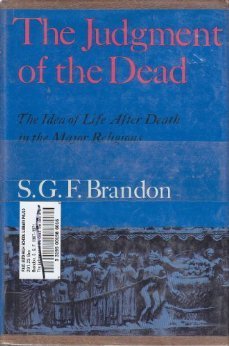What do you think?
Rate this book


300 pages, Unknown Binding
First published January 1, 1967
"the concept of a just and omnipotent God demanded an eschatology which promised that the justice of his dealing with individual men and women would be vindicated after death, since too often it was not demonstrated in this life." (63)
"Among the more notable of these ideas of post-mortem judgement we may notice what seems to have been the belief of the neo-Pythatgorean sect that built the underground basilica, near the Porta Magiore, at Rome. The members of this community, which flourised during the first century AD, conceived of salvation as the ascent of the soul into the Aether, its true and original home." (92)I'd like to learn more about this, and will be seeking out some other works.